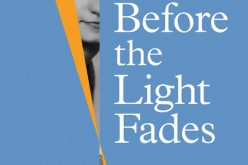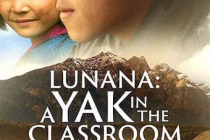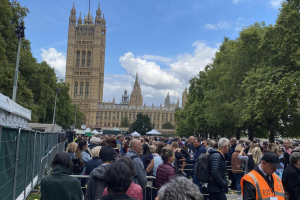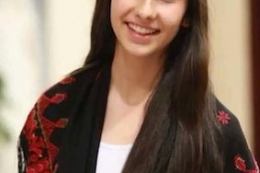Film: He Named Me Malala
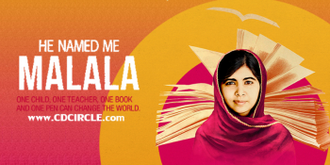
This is a film which should be compulsory viewing for anyone who loves - or hates - school and education. We all think we know the story of Malala, the teenager in the Swat Valley in Pakistan; we know she defied the Taliban restrictions of girls' education and we may remember that she was shot, brought to the UK, recovered and last year was the recipient of the Nobel Peace Prize.
That is indeed a harrowing story. But there is so much more to her story and to her as a person, of which this film gives us some stunning insights.
Malala, in legend, was a Joan of Arc figure for the Pathans, a young woman who urged her compatriots to fight the British, saying it is better to live a day in freedom than a hundred years a slave. She was killed during the fighting. Did our contemporary Malala's father anticipate that his beloved daughter might become a heroic figure? Early on in the film, her father expresses concern about what his daughter must feel and think of him, about him having allowed her to be exposed to such danger? But she stresses that is not the case, and, asked if she has anger about what happened, she tells us she has none, not an atom, not a neutron, not even a quark of anger.
We learn so much about those few short years in Pakistan. Malala was born in 1997, the first-born of parents who had met once, before their marriage; as her father says, in the US and Pakistan, love is very different. He saw she was beautiful, but uneducated, he considered himself dark (and therefore not handsome) but educated; and both of them felt they would complete each other.
The whole family is now in Birmingham, and we are shown her mother learning about living here, and learning English and regretting that because she wanted to play with her cousins and friends and not join the boys at school, she was not educated. Perhaps it was that that gave Malala her burning desire for schooling?
Or else it was the passion of her father, who founded a school. We also learn about his own struggles with a stammer, and learning to speak in public. He clearly inspires a deep-seated belief in equality between men and women, and Malala echoes him with her own conviction that Islam champions such equality as well as humanity. She is unbelievably passionate about school and learning; she believes that educating girls can transform their lives, but can transform our lives too. Didn't our Catholic Religious Orders strive for education for girls hundreds of years ago, showing how important it is?
The film shows elements of the story in animation, easing our understanding of a very different culture. It also shows their home town, both as a normal Swat Valley city before, and then after, when it was devastated by the destructive bombing, caused both by Taliban and later by Pakistan forces, trying to force the Taliban out. Pictures of their happy home life in their community, Malala with her two younger brothers before they were forced to live in fear, contrast vividly with such images. The family spent three months as refugees in their own country. Then you see them all in Birmingham, enjoying home life there, teasing and ribbing each other. They would like to go home, but they can't because she would be killed.
The shooting and attempted murder - by an ideology, not a person, her father stresses - is shown by diagram; Grievously wounded, Malala was rushed to a military hospital and ultimately to Birmingham, where the extent of damage to her brain caused them to fear that if she lived, she would be severely disabled. We then see film of her struggles to learn to walk, balance, coordinate, speak. She not only survived but she has retained her humour, her courage, her passion, her fearlessness, all strengthened by what she endured. And "despite being a world leader, she still has to take her GCSEs", as one person warned, as she introduced her to a media scrum.
Malala has become a global ambassador for girls' education; she is shown offering support to Syrian refugees, or addressing the UN, or challenging Goodluck Jonathan, the President of Nigeria, about the girls kidnapped by Boko Haram. We see her inspiring girls in Kenya, none of whose parents had received any education. We see her struggling with a science question but still pointing out that one of her favourite books is Stephen Hawking's A Brief History of Time, which she had to read a few times to get it! And the other current favourite is Paul Coelho's The Alchemist.
What an unbelievably inspirational person, supported by an amazing family - in particular her remarkable father, who is content to stay supportive and out of the limelight.
This is one hell of a story and it's a real story. Go see.
Watch the trailer here: www.youtube.com/watch?v=cug1-eTOVSk



